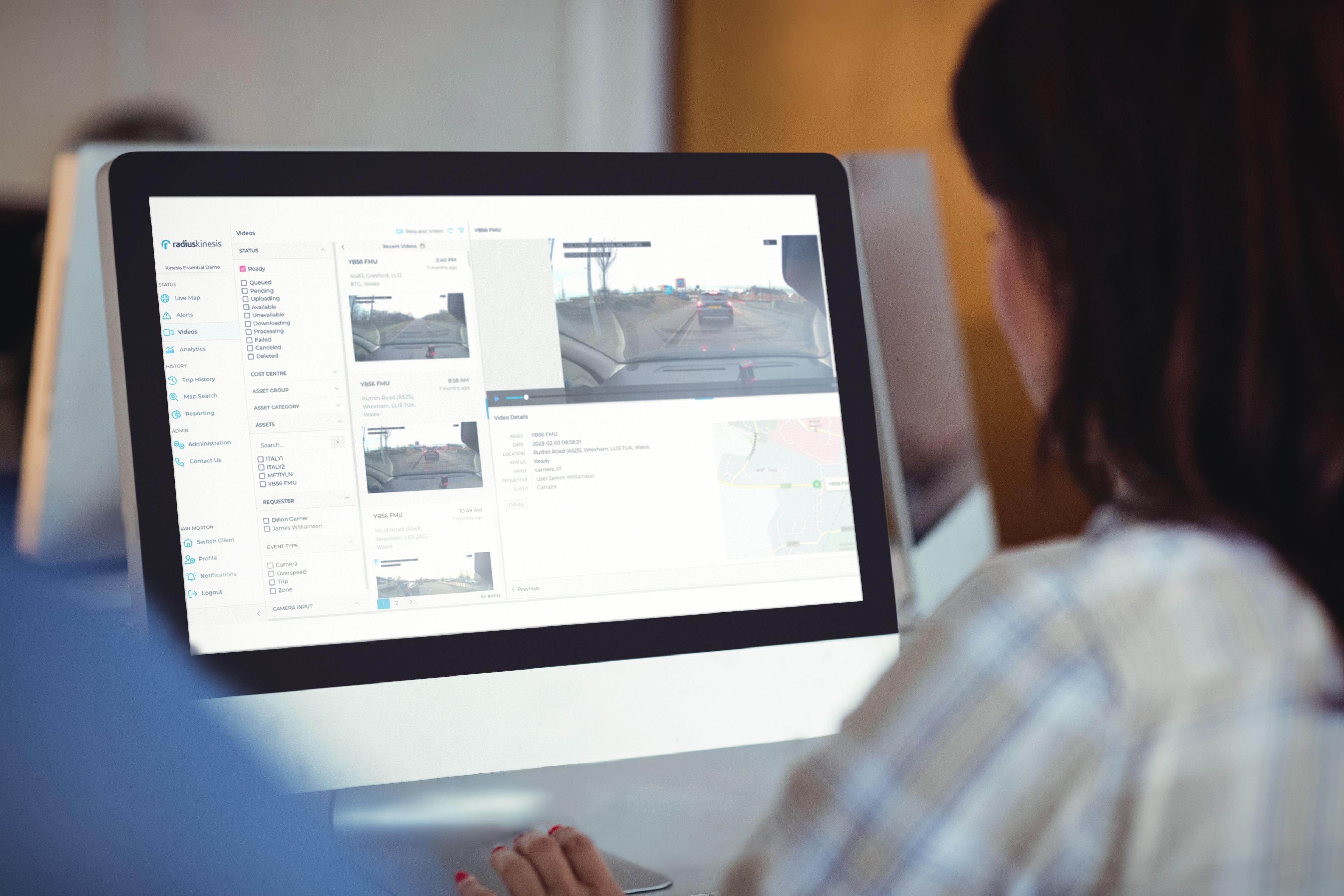- Home
- Telematics
- Vehicle cameras
- Company vehicle dash cam policy
Company vehicle dash cam policy
This in-depth compliance guide covers everything you need to know about creating a company vehicle dash cam policy in Australia—from complying with the Privacy Act 1988 and state-based surveillance laws to employee notification, data handling, and training.

The importance of a company vehicle dash cam policy
It is essential to implement a dash cam policy for company vehicles. Why? Because it ensures compliance, enhances safety, and ultimately protects your business. A clear, comprehensive policy helps manage the use of dash cams by addressing both legal requirements and operational guidelines.
The following guide will assist you in understanding how to stay compliant with the Privacy Act 1988, Australian Privacy Principles (APPs), and relevant state-based surveillance laws (such as in NSW and VIC), why introducing a dash cam policy is so crucial, and what key elements to include in your policy.

Privacy compliance for dash cams in Australia
When using dash cams in company vehicles, it’s critical to comply with the Privacy Act 1988 and the Australian Privacy Principles (APPs). Your business must ensure that any footage is collected, stored, and used in line with national privacy laws. This includes notifying employees—and where applicable, third parties—that recording is taking place. The purpose of recording must be clearly outlined, and data must be securely stored with access limited to authorised personnel.
In New South Wales (NSW), compliance with the Workplace Surveillance Act 2005 is also required. This legislation mandates that employees must receive at least 14 days’ written notice before surveillance begins and that surveillance must not be conducted in private areas (e.g., restrooms).
In Victoria (VIC), the Surveillance Devices Act 1999 applies, which prohibits the use of optical surveillance devices to record private activities without consent, unless explicitly permitted by law.
Radius dash cams support both federal and state compliance by offering features such as encrypted storage, secure user access, and audit logging, helping your business stay compliant across all jurisdictions.

Why businesses introduce a dash cam policy
There are numerous reasons to utilise a company dash cam policy. It supplies a structured approach to managing dash cam usage, something that secures consistency and compliance across your fleet. A well-defined policy mitigates risks, protects employee privacy, and establishes clear guidelines for data use. Furthermore, it supports training initiatives by delivering objective footage for driver feedback and incident analysis.
With a policy in place, your business can enhance its safety, reduce insurance costs, and defend against fraudulent claims.

Key elements to include in your dash cam policy
A comprehensive vehicle camera policy should cover several key elements. These elements are the purpose of using dash cams, data collection, and retention policies, employee consent and notification procedures, data access and security measures, and guidelines for using footage.
Clearly define who has access to the recordings, along with under what circumstances these recordings can be used. Furthermore, include provisions for regular reviews and updates to the policy. Doing so protects against any legal and regulatory changes, keeping your business compliant.

Data storage and retention guidelines
They can be easy to overlook, but effective data storage and retention are vital for compliance. Your dash cam policy should specify how long footage will be retained, where it’s kept only for as long as necessary for its intended purpose. Implement secure storage solutions – think encrypted cloud storage – to protect sensitive data from unauthorised access. Moreover, regularly review and purge outdated footage to minimise storage costs and reduce data breach risks.

Employee training and awareness
To successfully implement cameras in company vehicles, you must train employees on the proper use of this technology – along with your company’s policy. Your drivers need to understand the benefits of dash cams, how they enhance safety, and the importance of compliance with the policy. Additionally, provide clear instructions on how to handle and report any incidents captured on camera.
It’s recommended to conduct regular training sessions. This keeps employees updated and informed about any changes in the policy or legal requirements.

How Radius can help
Radius offers extensive solutions to help your business to effectively implement and manage dash cam policies. Our high-quality dash cams deliver reliable, HD footage that supports compliance and enhances fleet safety. When combined with our advanced telematics, which supports everything from data collection to real-time alerts, it makes it easy to manage your fleet while remaining compliant with regulations.

Frequently asked questions
Can’t find an answer to your question? Talk to the Radius customer support team on 1800 723 487. We’re here to help you with any questions or concerns you may have.
Partnership
Why choose Radius?
With innovative solutions built around the needs of our customers, we've established an international reputation for helping businesses grow sustainably.
Expertise
Our team has over 35 years of experience helping more than 470,000 customers globally.
Trust
We are an internationally-acclaimed provider with numerous awards for our products and services.
Choice
Choose from our range of fleet, mobility and connectivity solutions that can be tailored to suit your needs.
Solutions
Use our award-winning technology and services to save your business time and money.



Need help?
Can’t find what you are looking for?
The customer support team at Radius has a global reach with over 50 offices to offer local contact with an international presence. Let us know how we can help.
